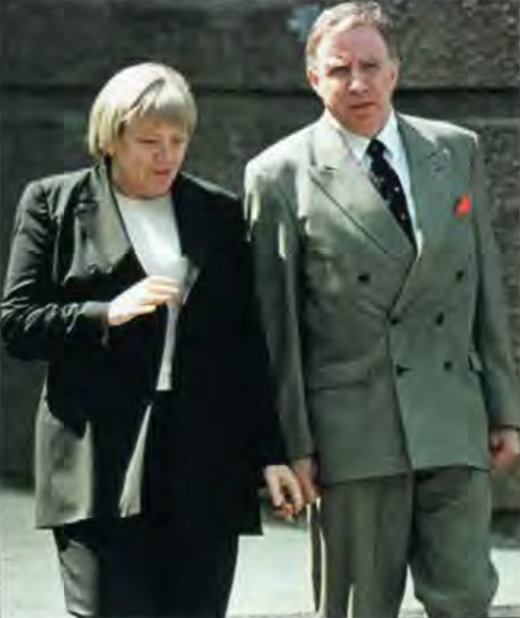The political crisis in the North looks set to continue in the coming months.
It seems that both Dublin and London are now resigned to the fact that it will take a lot of work to re-establish some trust between Nationalists and Unionists which would enable the institutions in the North to get up and running again.
Elections to the Northern Ireland Assembly are due in May and it is likely that the most extreme parties on both sides will benefit from the current impasse.
A new Northern Ireland Secretary of State has been appointed to replace Dr. John Reid who was brought back to London after a reshuffle of Tony Blair’s cabinet. Paul Murphy, who was Welsh Secretary, has been appointed to the job.
Dr. Reid’s blunt style did not endear him to many politicians in the North. The DUP welcomed his departure, as did Sinn Féin. Gerry Adams described him as a “dismal failure.”
But his successor Paul Murphy is well known to all sides, having served as junior minister for political development at Stormont with the former Northern Secretary, Mo Mowlam. He chaired the multi-party talks that led to the signing of the Belfast Agreement and he is generally respected by all sides.
He will be working closely with the two Governments to resolve some of the most contentious issues — policing, demilitarization, decommissioning and the stability of the Northern Ireland institutions.
Murphy may well have been hoping for a major gesture from the IRA to move the process forward, but instead of bowing to pressure the paramilitary group suspended contact with the decommissioning body. It blamed Unionist intransigence and a “real threat to the peace process from the British establishment and its agencies as well as the loyalist murder gangs” for its decision.
The IRA ceasefire remains intact, but the group says that the onus is now on the British Government and others to create confidence in the peace process.
The latest crisis was sparked by a series of dramatic police raids on Sinn Féin’s offices in Stormont and the homes of a number of party activities at the beginning of October.
Dozens of police officers some in riot gear pulled up in armored land rovers outside Stormont and in front of television cameras proceeded to search the Sinn Féin offices.
The manner in which the mid was conducted deeply shocked a New York City Council delegation which was in Belfast on a fact-finding trip.
Michael Carroll, a lawyer with O’Dwyer and Bernstein in New York who organized the trip, described the incident as astonishing. “Can you imagine if a Democrat or Republican was suspected of breaking a law here and the police sent armored cars up to the Capitol building.
“Talk about overkill. Did they expect that Sinn Féin had guns and ammunition up there and that they were going to start firing back?” he said.
Following the raids, a number of people, including Sinn Féin’s chief Stormont administrator Denis Donaldson, were charged with having information which could be of use to terrorists.
It is claimed that Donaldson had confidential information about members of the police and the head of the British Army in the North. He is also said to have had information on known loyalists and a sketch of Castle Buildings, where the Northern Secretary is based. He has pleaded not guilty to the charges.
The arrests provoked Unionist uproar and forced the suspension of the institutions in the North. ♦


Leave a Reply